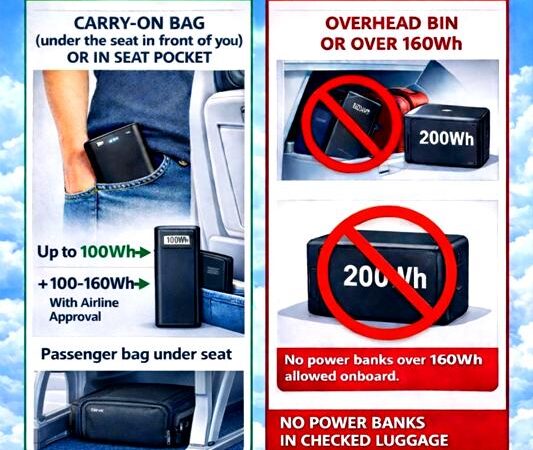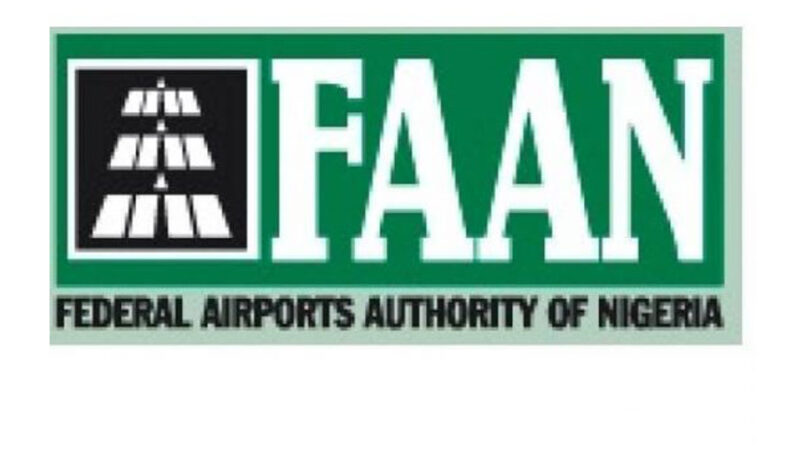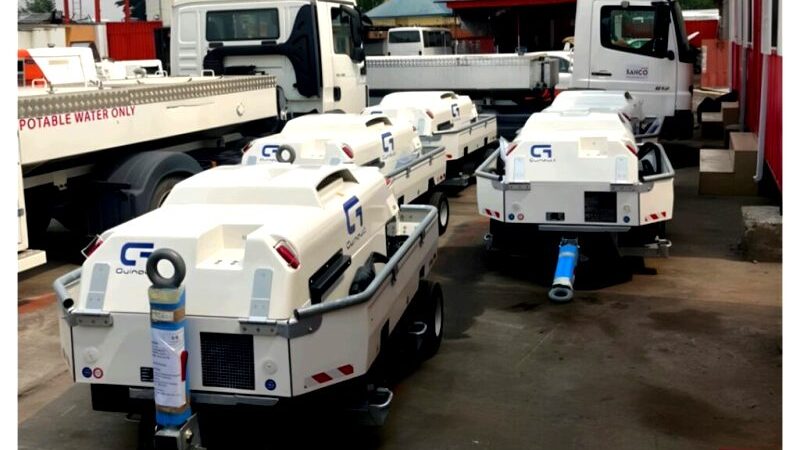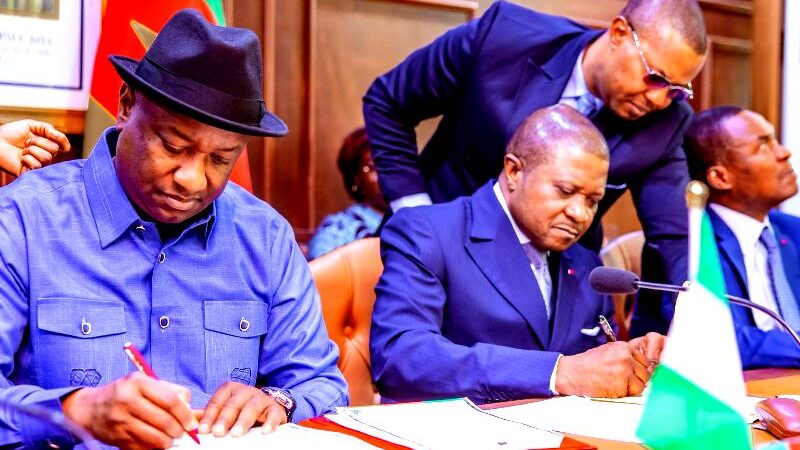Encourage Aviation Businesses To Thrive, Stakeholders Tell Government

Stakeholders in Nigeria’s aviation industry say “it is important for Nigeria as a nation to cease taxing seeds but, instead, foster an environment that encourages businesses to thrive, bearing fruits that can be taxed, as the country cannot aspire to be competitive while at the same time, burdening businesses with complex processes. The existence of multiple charges and levies on cargo export is a huge disincentive to Nigeria’s cargo potentials and therefore, should be addressed urgently in the interest of the overall economy. It is imperative to remove the obstacles to the movement of cargo by air within and outside Nigeria by exposing and reviewing all existing known and unknown charges, tariffs and fees at the nation’s cargo sheds. In this regard, ART will partner with the Aviacargo Roadmap Committee to address this issue.”
This formed part of the communiqué issued at the end of the Business Breakfast Meeting held on December 7, 2023 by Aviation Safety Round Table Initiative (ASRTI), Nigeria’s foremost aviation NGO at Golfview Hotel, Ikeja, Lagos.
Theme of the programme was Nigerian Aviation Sector Charges And Tariffs: Truly Exorbitant?
The communiqué further reads: “There is need for policy advocacy and education of all stakeholders to better understand the differences between charges, duties and tariffs in order to better examine their validity, legality and impact to the Nigeria’s economy and to support the federal government’s foreign investment drive which may be negatively impacted by multiple taxes and charges.
All stakeholders affected by multiple charges, taxes, duties and tariffs should collaborate to move against policies that encourage them. In this process the stakeholders are to partner with ART to lobby the various arms of government towards streamlining the charges and encourage the growth of the industry. It will be necessary to produce a draft legislation related to taxes, tariffs, charges and forward same to the National Assembly for review and passage into law.
The Federal Inland Revenue Service (FIRS) is called on to review and clarify its recent policy which suggests that travel agents will pay taxes on ticket commissions and pay another tax on their corporate organization’s activities
The clear identification and listing of all charges, taxes, duties and tariffs as provided in the schedule from the NCAA will provide an opportunity for payers to better understand, interrogate and possibly eliminate some of extraneous and duplicitous charges, taxes, duties and tariffs. It also called on every agency to make a comprehensive list of its charges available in the manner of the NCAA which creates for a more transparent understanding of charges.
It called on the efforts by all stakeholders to eliminate the perception that Nigeria’s Lagos and Abuja airports charge are the highest in the world are that they are the most expensive as this perception is a huge scare to foreign investment and not an attractant to the development of the airport and aviation strategy. The high landing and parking fees for cargo aircraft in Nigeria should be reviewed so that interested investors will not keep preferring neigbouring countries like Ghana and Togo for their cargo operations.
State should be encouraged to develop airports to increase access to the states, convenience for travelers and the resultant economic benefits to the nation, however, there is a need to review the multiple charges collected from state-owned airports that strip them of the capacity to expand and develop their airports, resulting often times in the states returning airports to the management of the Federal Airport Authority of Nigeria and worsening an already problematic issue. The issues of the FAAN, NAMA and NiMET charges that have already been provided for and duplicated in violation of ICAO Document 9082, an example is the charge for flight plans after receiving part of NCAA’s 5% that the same airports helped to generate.
There is the need for an effective mechanism for “regulating” the charges imposed by service regulators in Nigeria so this can serve as a tool for dealing with underlining ‘agency cost’ in Ministries, Departments and Government Agencies (MDA’s). Oversight of regulators and the proper coordination of charges by MDAs will prevent the prevalent abuse of regulatory power for revenue purposes. In this regard, aviation agencies in Nigeria should not be compelled with revenue targets requiring that they impose charges and fees on service providers to meet these targets and thereby impede the sector growth and development.
There should be only one single revenue agency as is commonplace in modern economies, this is to get the aviation agencies to focus on their core mandates of providing safe and secure aviation services rather than the focus on revenue generation through multiple charges, tariffs and fees and in the process discouraging investments and sector growth.
It was disclosed that only nine of the twenty-five charges currently being paid on cargo are recognized by the government. The implication is that money is going into private pockets impacting the movement of goods and services as cargo, it is important therefore for the federal government to investigate this matter and take action to forestall such activities and make Nigerian exports competitive. Furthermore as an initial and important step, there should be an immediate Executive order to put a stop to all forms of charges that make Nigerian exports less competitive, hinder investments and prevent the country and economy from attaining its full potentials in the air cargo sector. The executive order is then expected to be replaced by new laws to be proposed.
NCAA’s charges have been described by the speakers are including over 456 different items, this though having been described as transparent enables a deep dive and examination however, it has been proposed that charges across the Board be reduced and made more beneficial to the industry.
There is the need for the total automation of revenue collection systems and processes for cargo to enable the removal of unnecessary and unknown, and illegal charges from the system.
Agencies such as NAFCDAC, SON and others that do not need to be physically present at the airport should not be and should not interrupt the normal flow of outbound and inbound cargo. This is another reason for the automation of the processes to enable these agencies access to the information required to do their jobs without setting up a permanent presence at the airport. This will also further reduce corrupt practices at the airports.
Nigeria needs to review the number and types of agencies and other parties involved in the air cargo processing and handling system. As a first step individuals should be able to conduct their own export and import processes through the airports, and where an agent is required, this must be done by an officially recognized and trained registered cargo agent operating within the limits of the laws in Nigeria. The biggest challenge facing Nigerian exports is the process and this recommendation is done to improve the acceptance of Nigerian exports.”
Speakers at the event included Mr. Taiwo Oyedele, Chairman, Presidential Committee on Fiscal Reforms and Tax Policies; Prof. Abiola Sanni (SAN), Specialist in Commercial Law, Taxation & Arbitration, University of Lagos; Dr. Gbenga Olowo, President, Sabre West Africa; Prof. M. T. Abdulrazaq, Expert in Tax Regulatory Services and Air Commodore Ademola Onitiju (Rtd), President, ASRTI.
SEE MORE PHOTOS
PHOTOS From ASRTI BBM On Charges, Duties, Tariffs In The Aviation Sector






